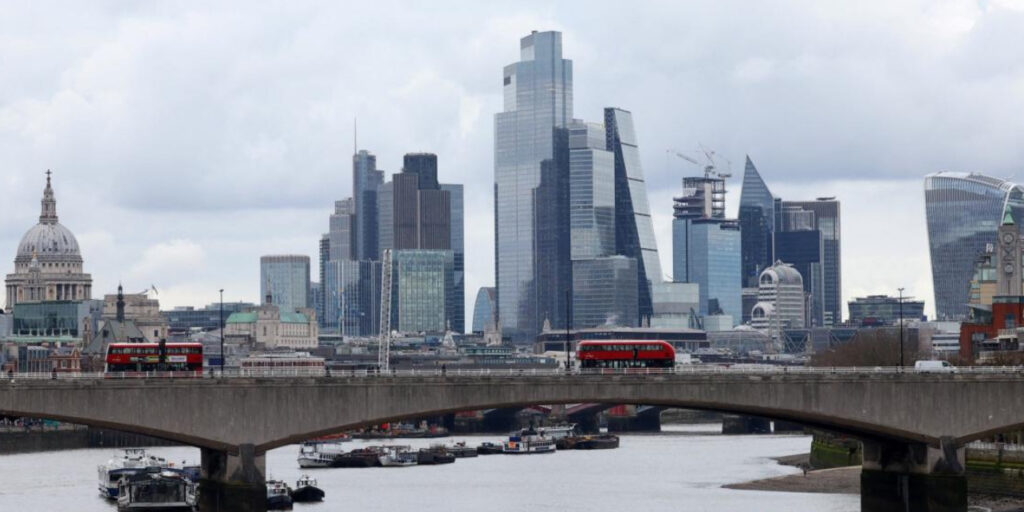The number of job opportunities in London’s financial services sector has dropped to its lowest point since 2020, while confidence among Britain’s finance chiefs has hit a two-year low, according to new data.
A survey by recruiter Morgan McKinley revealed that City job openings fell to 3,664 in the final quarter of 2024, down from 4,483 in the previous quarter.
This marks the lowest level of financial services vacancies since the height of the Covid-19 pandemic, when the economy was temporarily shuttered.
Similarly, Deloitte’s latest poll of chief financial officers (CFOs) found business confidence plummeting to its lowest level since early 2023. Hiring plans have also seen their steepest decline since the pandemic.
Budget Measures Blamed for Downturn
Both Morgan McKinley and Deloitte have pointed to Rachel Reeves’s Budget as a key driver of the slowdown. Higher employment costs, including the planned rise in employer National Insurance contributions, have made businesses more reluctant to hire.
Mark Astbury of Morgan McKinley stated: “The financial services sector in London suffered a contraction in 2024, with job availability plummeting. The Budget’s measures only exacerbate the strain on businesses, forcing many to implement hiring freezes or abandon growth plans altogether.”
Deloitte’s survey of over 60 CFOs, including leaders of London-listed firms, found that many are responding to Ms Reeves’s tax measures by cutting costs and raising prices.
Ian Stewart, Deloitte’s chief economist, remarked: “With cost control taking precedence after the Budget, CFOs have trimmed expectations for corporate investment, discretionary spending, and hiring over the next 12 months.”
Economic and Structural Challenges Weigh on Confidence
The financial services sector has also been hit by structural challenges, including the exodus of companies from London’s stock market and the rapid adoption of technologies like artificial intelligence (AI). These advances are prompting firms across banking, law, and other professional services to reevaluate traditional roles.
Astbury warned: “These stark figures paint a sobering picture of an industry grappling with economic volatility, geopolitical uncertainty, strategic overhauls, and the rapid pace of technological disruption.”
Political Fallout and Growing Pressure on Government
The findings have intensified concerns about Britain’s struggling economy. Last week, government borrowing costs surged, partly due to fears over economic stagnation, placing additional pressure on the Chancellor to spur growth.
Shadow Business Secretary Andrew Griffiths criticised the Labour government, stating: “Survey after survey shows that the Labour Budget has damaged business confidence and our economy. This is a crisis made in Downing Street, and it could get much worse for families across the country.”
With hiring freezes, reduced corporate spending, and a strained financial sector, experts warn of tougher times ahead unless significant measures are taken to reverse the downward trend.


